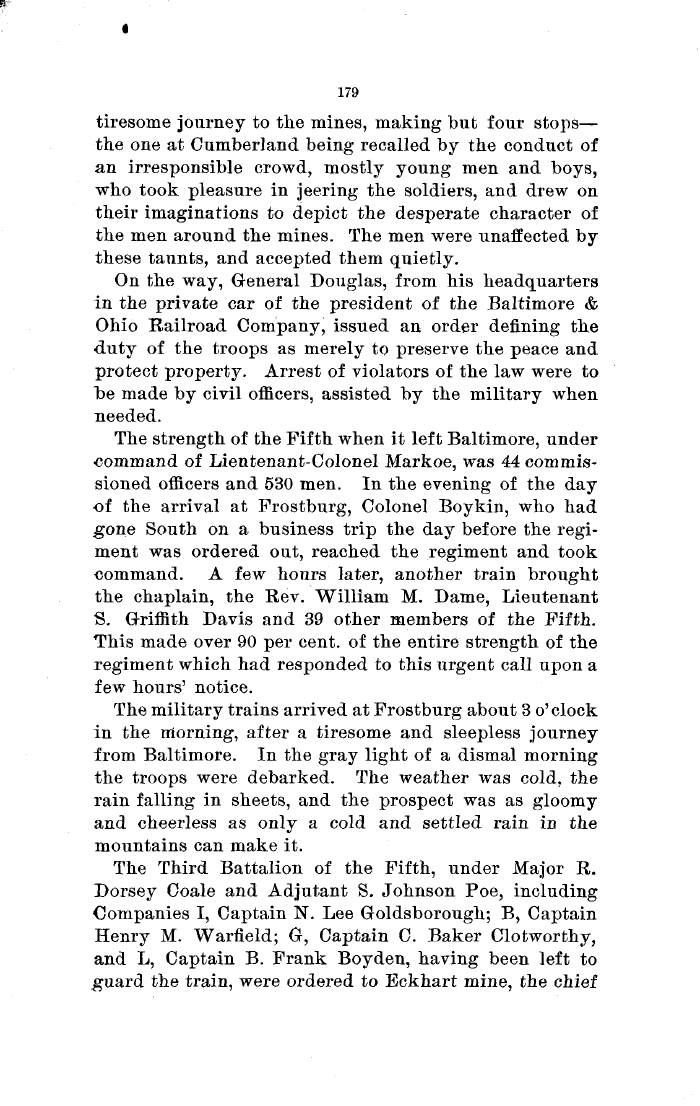 |
||||
 |
||||
| 179 tiresome journey to the mines, making but four stopsó the one at Cumberland being recalled by the conduct of an irresponsible crowd, mostly young men and boys, who took pleasure in jeering the soldiers, and drew on their imaginations to depict the desperate character of the men around the mines. The men were unaffected by these taunts, and accepted them quietly. On the way, General Douglas, from his headquarters in the private car of the president of the Baltimore & Ohio Railroad Company, issued an order denning the duty of the troops as merely to preserve the peace and protect property. Arrest of violators of the law were to "be made by civil officers, assisted by the military when needed. The strength of the Fifth when it left Baltimore, under command of Lientenant-Colonel Markoe, was 44 commissioned officers and 530 men. In the evening of the day of the arrival at Frostburg, Colonel Boykin, who had gone South on a business trip the day before the regiment was ordered out, reached the regiment and took command. A few hours later, another train brought the chaplain, the Rev. William M. Dame, Lieutenant S. Griffith Davis and 39 other members of the Fifth. This made over 90 per cent, of the entire strength of the regiment which had responded to this urgent call upon a few hours' notice. The military trains arrived at Frostburg about 3 o'clock in the morning, after a tiresome and sleepless journey Irom Baltimore. In the gray light of a dismal morning the troops were debarked. The weather was cold, the rain falling in sheets, and the prospect was as gloomy and cheerless as only a cold and settled rain in the mountains can make it. The Third Battalion of the Fifth, under Major R. Dorsey Coale and Adjutant S. Johnson Poe, including Companies I, Captain N. Lee Goldsborough; B, Captain Henry M. Warn"eld; G, Captain C. Baker Clotworthy, and L, Captain B. Frank Boyden, having been left to .guard the train, were ordered to Eckhart mine, the chief |